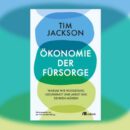
Abstract
This paper together with Craig Rye utilises Critical Slowing Down (CSD; instability) indicators developed by statistical physics to analyse economic growth rate variability and secular stagnation in historical GDP data. Understanding these phenomena is vital, particularly in advanced economies faced with declining growth rates. Two novel indicators – the autocorrelation (AR1) and the variance – are found particularly useful in providing insight into inter-decadal GDP variability over this period. These indicators are first applied to the Maddison-Project historical dataset, which includes almost a century of data for some 80 countries and almost two centuries of data for 9 countries. They are additionally applied to ~50 years of recent annual data for around 130 countries from the World Bank dataset as well as ~60 years of recent quarterly data for around 20 countries from the OECD dataset. Analysis reveals inter-decadal variability in growth cycles (the recession cycle), highlighting periods of large slow growth cycles and periods of small fast growth cycles. The most commonly occurring pattern is characterised by an increase in CSD from the 1900s to 1940s, a decline in CSD between the 1930s and the 1970s, then a further increase in CSD from the 1960s to 2010. This pattern is significant in ~70% of the advanced economies. CSD indicators may then provide invaluable insights into specific aspects of inter-decadal GDP variability, such as on the nature of the business cycle, secular stagnation and the implicit “restoring forces” of the economy.
The article is available in open access format on the Nature website. If you have difficulties accessing the paper, please get in touch: info@cusp.ac.uk. A blog, putting the findings from this work into post-COVID context can be accessed on the CUSP blog page.
Citation
Rye C D and T Jackson 2020. Using critical slowing down indicators to understand economic growth rate variability and secular stagnation. Nature Scientific Reports 10, 10481 (2020). https://doi.org/10.1038/s41598-020-66996-6.
Press Release
- Global economic stability could be difficult to recover in the wake of the Covid-19 | University of Surrey Press Release, 26 June 2020
This post first appeared on the CUSP website, 26 June 2020.






